
Preventative dental care, especially dental exams, are a crucial component of preventive healthcare, and they can lead to early diagnosis and intervention for a wide range of oral health issues. Here’s how dental exams contribute to early diagnosis:
Regular dental exams, typically recommended every six months, play a crucial role in maintaining optimal oral health. Preventative dental care not only helps diagnose issues early but also allow for timely intervention and preventive measures, ultimately reducing the risk of more extensive and costly dental problems in the future.

Your dental exam can expose and help diagnose Oral Cancer and Gum Disease early …
You know that your dental team keeps your mouth healthy and clean when you schedule your dental exam and cleaning every six months, but did you know that getting regular dental checkups is the most important procedure against oral cancer and gum disease? Your dentist is doing a lot more than just checking up on your smile and making sure you don’t have any cavities. Preventative dentistry can detect early signs of cancer, gum disease, and other major health problems. All in all, preventative dentistry could save your life.
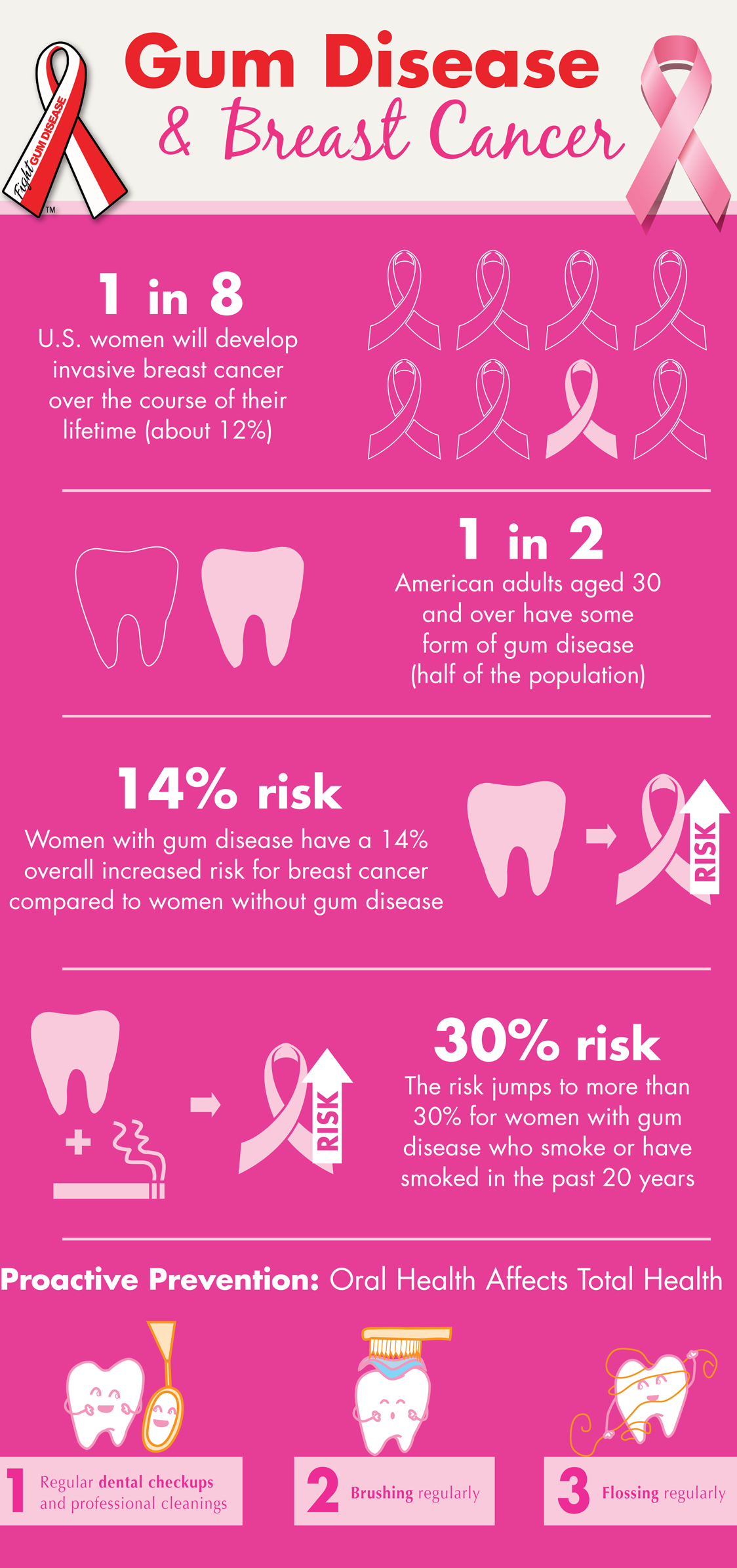
Research suggests that postmenopausal women with gum disease are more likely to develop breast cancer than postmenopausal women who don’t have gum disease. Why? Let’s discuss how we can fight gum disease reduce breast cancer risk.
Gum disease, also called periodontal disease, can range from simple inflammation of the gums, called gingivitis, to periodontitis, when the gums pull away from the teeth leaving open spaces that become infected. The bacteria causing the infection and the body’s response to the infection can break down the bone and connective tissue that hold your teeth in place. If periodontitis isn’t treated, the teeth may become loose and must be removed.

You may not have heard of Periodontal Disease, if you visit your dentist regularly and you haven’t – that’s probably a good sign that you have healthy gums! Poor dental hygiene can lead to problems that are more severe than the average cavity or case of bad breath. Periodontal Disease is also known as Gum Disease and almost 50% of adults have some form it. Gum disease is most commonly the result of poor dental hygiene and is the inflammation of the tissue around the teeth, according to www.medicinenet.com. Here’s the scary part – if left untreated, it can lead to even more serious problems, ranging from tooth loss to heart disease. Knowing the signs, symptoms, and treatment for various stages of gum disease can set you on a proactive path to avoiding a disappointing dental visit.
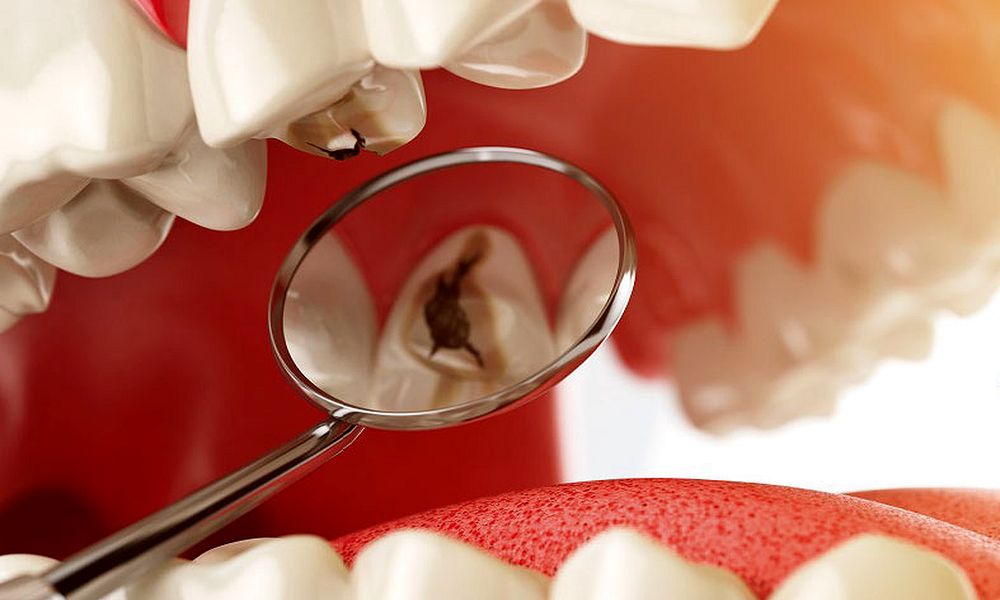
Dental cavities, also known as tooth decay, breaks down your tooth’s enamel (the hard outer layer of a tooth) and can vary in severity and stages of decay. Let’s take a look at the various tooth decay treatments and how we can help at Premier Dental.
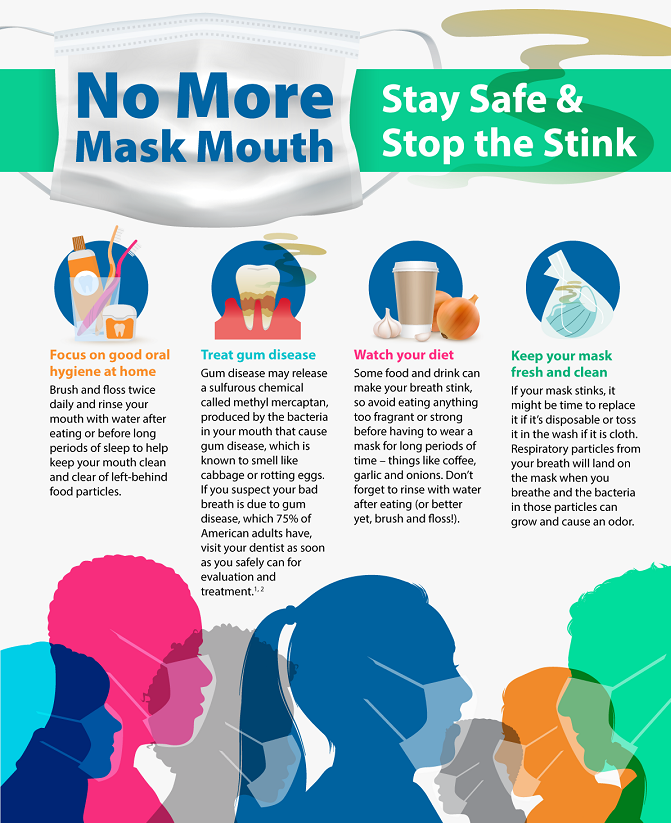
Oral care is more essential than ever. While wearing face coverings that are to protect us from diseases and are recommended by the CDC, dentists are seeing a rise in gum disease from “mask mouth.”
Mask Mouth refers to a range of symptoms associated with wearing a face mask. The main symptom being bad breath, or halitosis. While bad breath may seem annoying and temporary, it’s a sign that something isn’t quite right. It’s important to pay attention to any warning signs or symptoms of mask mouth and take action to prevent it!
Let’s look into some helpful, preventative measures for mask mouth.
The truth behind mask mouth:
One of the most common signs of mask mouth is bad breath. If you’re breathing through your mouth while wearing a mask, you’re drying out your mouth and causing bad breath. This can also cause dry lips.
Dry Mouth:
Saliva is such a great tool that our body already produces to help keep the germs out of our mouth, so when our mouth becomes dry and we lose saliva production, we build bad-breath bacteria in the mouth.
Less saliva in the mouth also means we are more prone to tooth decay and infections. When we are wearing our mask often and experience dry mouth, we’re advancing or progressing tooth decay.
Bad breath is often a sign that something isn’t quite right. When we wear our masks, we may breathe through our mouths more and dry out our mouths. While this may not seem like an issue, when we dry out our mouths, we leave them more susceptible to bacteria growth. When bacteria grow in our mouth, we can experience things like cavities and gum disease. Saliva is a huge multitasker in our mouths and it constantly keeps bacteria at bay. When we lose saliva production, we lose our biggest bacteria fighter.
The new oral hygiene issue — caused by, you guessed it, wearing a mask all the time to prevent the spread of the coronavirus — is leading to all kinds of dental disasters like decaying teeth, receding gum lines and seriously sour breath. Learn More about the stinky side effects of Mask Mouth HERE.
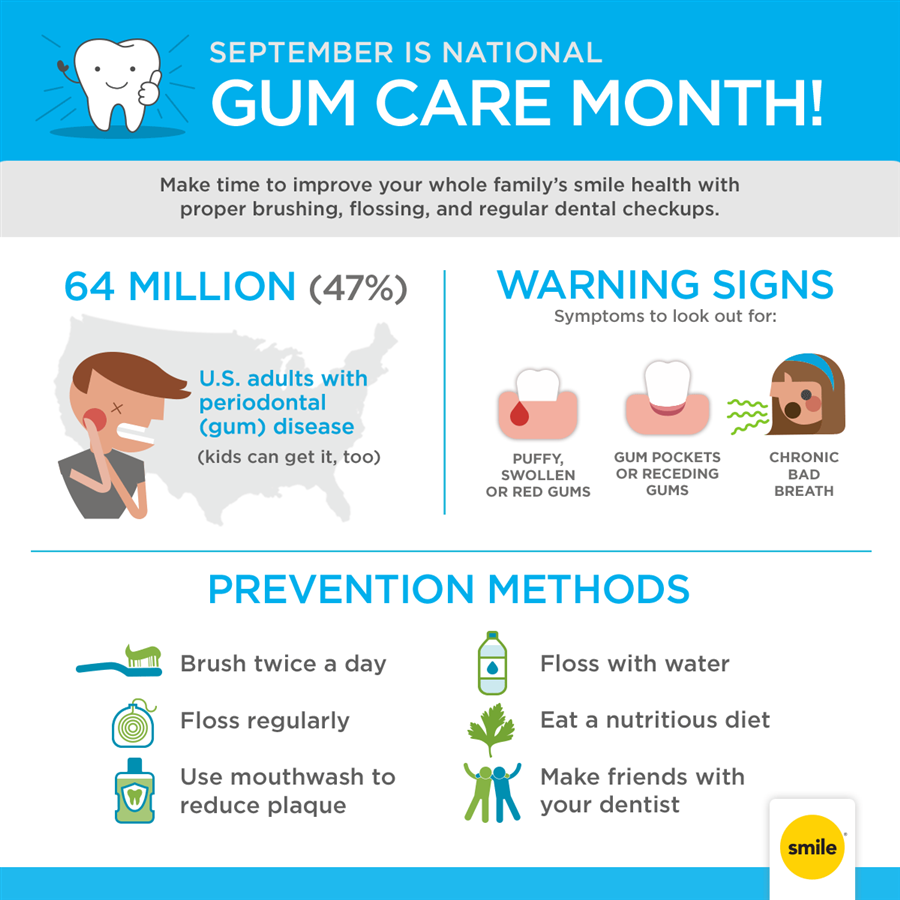
Dr. Caye and his team at Premier Dental join dental practices and professionals around the country each September in celebration of National Gum Care Month. Why is gum care so important? Let’s dive in and find out!!
You may not have heard of Periodontal Disease, if you visit your dentist regularly and you haven’t – that’s probably a good sign! Periodontal Disease is also known as Gum Disease and almost 50% of adults have some form it. Here’s the scary part – if left untreated, it can lead to even more serious problems, ranging from tooth loss to heart disease.
Yes … that’s why Gum Care Month is SO IMORTANT!! However, Gum Disease can be prevented!
There are several preventative actions you can take to help avoid the onset of gum disease. We want you to be on the lookout for these tell-tale signs so, we’ve gathered some interesting information and statistics for you as well.

Beards, manscaping, hair gel, man caves, and self-grooming galore! In today’s world, men are taking charge of their aesthetic and their health, and dental health should be no different … that’s why we’re tackling dental health for men in this article.
Good dental health for men equals good overall health, as all parts of the body are interconnected. In fact, men are more commonly dealing with gum disease than women, making oral health even more important.

Do you have a toothache, but are a little unsettled at the thought of needing root canal therapy? We can get your questions answered and put you at ease. These are some of the questions we’ve gotten from our patients: What is a root canal? Can I avoid getting a root canal? What are the symptoms? And … will it hurt? (more…)
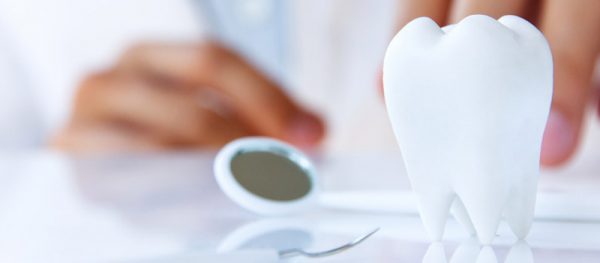
It’s a busy time of year. Our stomachs are already grumbling in anticipation of roasted turkey and pumpkin pie. Our minds are busy thinking about Christmas presents and holiday breaks from the workroom. In the hustle and bustle of everyday life, it’s easy to forget to take care of ourselves and instead get lost in the busyness of it all. However, no matter how busy we may be, it’s so vital to keep up with our oral health and hygiene. No one wants to worry about a cavity or a filling around the holidays, and that’s why it’s crucial to check in with your dentist before the end of the year.